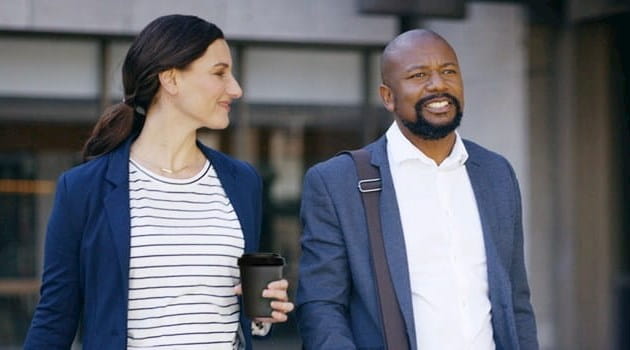“Being in a financial role, you've got much better visibility of all the dots that need to join together to demonstrate which investments need to be prioritised towards achieving net zero,” said Angus Douglas, group finance director at Star Refrigeration. “With the finance hat on, you can turn the pound notes of an energy bill into grams of carbon, to highlight the total cost of energy consumption - and quickly get the attention of your customer base and their stakeholders.”
Douglas tells ICAEW Insights how pivotal a role accountants could play in businesses striving towards net-zero status. He flags how finance professionals should be promoting the investment in green technologies which are already available right now, and not waiting for new initiatives that are still years from launching.
Founded in 1970, Star Refrigeration is the UK’s largest independent industrial refrigeration engineering company. Douglas joined back in April 2017 and says that from an environmental and energy performance perspective, it's always been Star's ethos to provide custom-engineered cooling and heating systems with a focus on the highest possible efficiency and the lowest environmental (global warming potential) impact refrigerant. This, together with full system life cycle service and maintenance support, differentiates Star in the refrigeration market – a climate-friendly strategy that isn’t so niche 50 years later.
He added: “More people are now pricking up their ears to pound notes of energy use and grams of carbon energy as the corporate reporting requirements increase company transparency on their carbon footprint and the actions being committed to reducing that impact. And I think with lots of investment choices comes lots of questions of how much cash and facilities are available across businesses to spend on these investments, as well as other competing operational demands.”
Assessing where the businesses carbon footprints land
Douglas says that at Star, the majority of their carbon footprint is in their transport for field-based engineers (of which they currently have around 150 and growing), supporting clients' refrigeration systems throughout the UK. As a result, “we've commenced our low emission vehicle journey over the last 18 months, where we worked with our fleet company called Lex Autolease and updated our policy into one that supported staff to switch from the traditional gas guzzlers towards hybrids, and ultimately in the last 12 months onto more fully electric vehicles,” he said.
“The obstacles for success tied in with doing this are, of course, vehicle availability and the usual battery range challenges for the vehicles available at the moment. We have found, however, that in the last three to six months, as larger batteries and more models are being released by more manufacturers, some of these obstacles are going to be removed as the motor manufacturers continue to develop their models.”
Over the next two to three years, Star’s ambition is to operate 80% of their fleet with an EV or ultra-low emission vehicle that has enough range at the right cost level to be both operationally and financially right for the business.
Helping your customer base achieve net zero
“I guess the obstacles we see for our own customer base is struggling to invest in the right types of high-performing, efficient, low-energy-use refrigeration systems. Systems that use zero global warming refrigerants such as ammonia can be more difficult to attain primarily due to cost, complexity of safe operation and often access to funding.”
Star spends a lot of time demonstrating with their own energy monitoring systems on clients’ energy plants how incremental investment in more efficient plants can have a much shorter payback term, guiding them towards greener solutions.
Douglas adds: “We have invested in our own bespoke remote monitoring software, which captures how much actual energy any refrigeration system is absorbing, and the system provides clients with automatic insights based on all our years of application knowledge to highlight where and why a system is running with excessive energy use. That can often be fixed by way of replacing specific components or carrying out service or maintenance works to improve the system performance.”
Advice for accountants: use solutions that are available now and invest
Douglas believes there are opportunities available now to start reducing carbon footprints, and not all of them require a great deal of money to be invested.
“The advice is to look at what's out there now, rather than worrying about the need for something new to be created. Some heating applications using hydrogen for example, which is clearly not ready and would require many years of further development,” he said. “If end-users can take a steer from their own advisers and businesses such as Star who have already shown what can be done with existing proven technologies.”
Douglas continued: “What would help the economy move more quickly towards net zero in the next five or ten years is the ability for changes in government policy to make it financially viable for companies to commit and invest in these available technologies – supported by our financial institutions to fund a better long-term solution.”
COP26: acting together
Find inspiration, information and practical resources to support the goals of the UN Climate Change Conference in Glasgow and explore why it represents a critical time for the profession.


